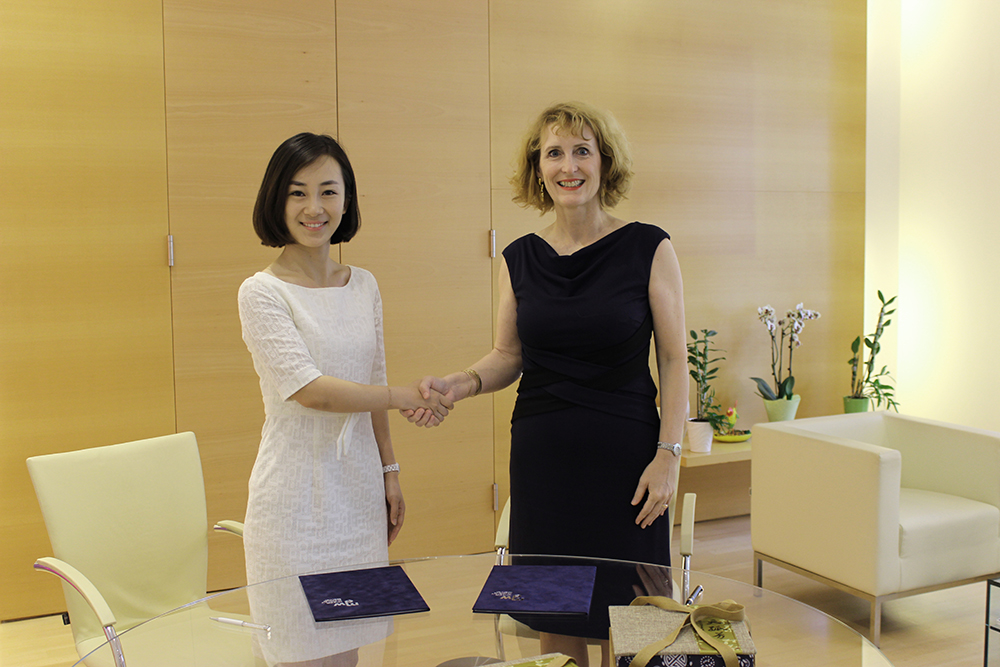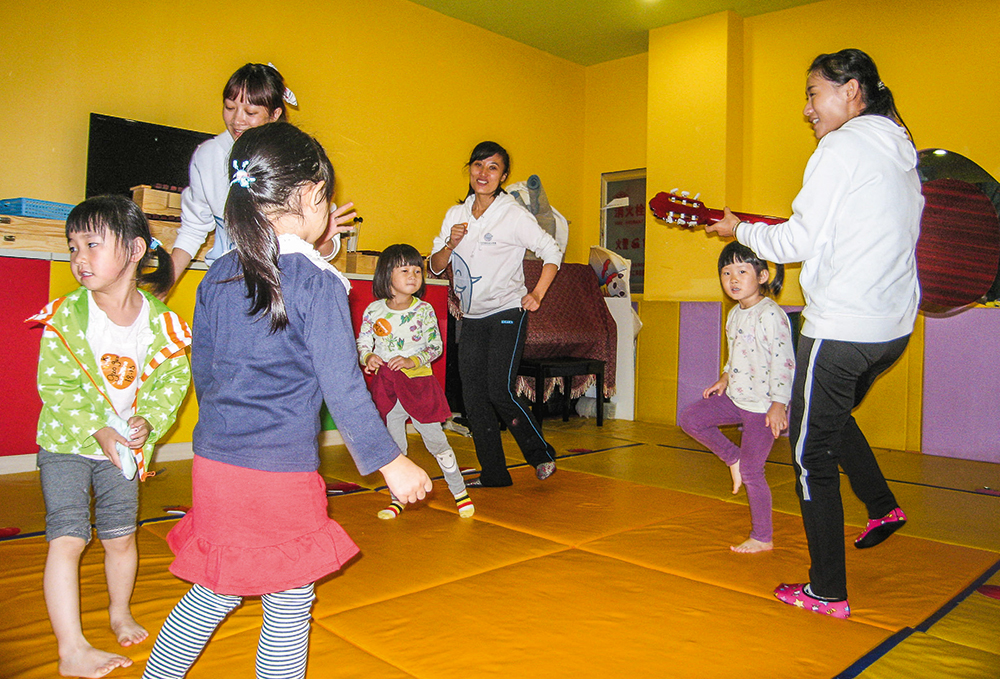China invests in the encouragement of creativity and trusts in the mdw‘s specialised expertise.

With its 18.7% of the world’s population, the People’s Republic of China is the most populous country on Earth. And following the end of its “one child policy” in January 2016, China’s educational sector represents a growing market that is attracting investors from all over the world. By now, countless educational institutions have become involved in the country’s early childhood education programmes. But in the area of music, the educational offerings are still largely aimed at high achievement and technical mastery, with actual creativity relegated to the background. Many parents, however, want their children to learn eagerly and with pleasure, for which reason they’re open to new teaching concepts. And the Viennese method of elementary music education, where creativity is promoted in a playful way, is now poised to add a new quality to educational offerings for children in China.The company Hailun Art Education Investment, a subsidiary of Ningbo-based piano manufacturer Hailun Piano, is investing in a multi-year partnership with the elementary music education specialists of the mdw.
An Elephant Conveys the Joy of Music to Chinese Children

The individual who catalysed this Austrian-Chinese cooperation was a Chinese mother in Vienna whose child had successfully taken part in the Elementary Music-Making programme and infected her with the resulting enthusiasm for this new way of learning. This mother’s personal efforts led to contact and a trusting basis for further discussion between Chinese authorities and the University. The fact that Elie then came to fruition is largely due to the work of Gregor Widholm, the former mdw Vice Rector responsible for external relations, whose conviction and dedication advanced the idea and intensified relations between the specialists at the mdw and their Chinese partners.
April 2016 witnessed conduct and evaluation of a test phase in Kunming (Yunnan Province). And now, two-year instructional units are being offered on a regular basis to Chinese teachers working in the field of early childhood education. These units do without a predetermined curriculum and are explicitly oriented toward the long term, with self-experience a significant component of teaching and learning. The Chinese language and culture play an important role here, too, for which reason a Chinese dictionary of the relevant specialist terminology is currently being prepared. Project head, Eva Königer, an elementary music and dance educator, musician, and composer who also heads the Vokalwerkstatt [Vocal Workshop], an open space for body-voice work, was directly involved in developing the concept for Elie: “China has an aggressive and performance-oriented market where quick results are expected. So if we succeed here in opening the door to another way of making music and doing things in a group, we’ll have achieved quite a bit.”

Elementary music education has established itself as a young academic discipline in which research, teaching, and practice are closely linked. At the mdw, this field is situated at the Department of Music Education Research, Music Didactics, and Elementary Music Education. And in the Viennese approach developed here, elementary music-making has proven its value as a central artistic practice and holds its own as an specific form of music-making to which creativity is central.
Educator and songwriter Ruth Schneidewind heads the mdw’s Elementary Music Education programme and has been with the team since the beginning: “It all started back in 1983 with the supplemental programme in Elementary Music Education, which was set up to develop new concepts for children’s initial instruction that were different from the early-childhood music education practices common at that time. Today, we have twelve instructors who practice elementary music-making, which is unconditionally possible for people of all ages and is equally enriching for both laypeople and professionals. Its artistic concept of elementary music-making can be characterised by five effective factors: it’s independent, mutual, receptive, unconditional, and inherently consistent. Independent music-making out of one’s own self is a fundamental prerequisite for artistic expression. And making music as a group requires mutual stimulation and attentiveness. This both independent and group-based approach to music-making is encouraged, and receptivity to all musical phenomena expands it. Awakening the participants’ innate abilities and opening up their senses ultimately requires the person leading the music-making processes to proceed in a well-considered manner. This can entail using various avenues ranging from the overall body to the voice, language, all kinds of music-making implements, acting things out, and visual associations.”

By now, the methods and principles of elementary music making have also been built into numerous other artistic and teaching contexts. “Elementary music-making has grown into an effective rootstock that’s now bearing all kinds of fruit,” says Schneidewind.
This playful way of unearthing creative resources harbours personal and professional development prospects but also provides a lot of joy, and it’s particularly in this sense that it points the way to the future in terms of a society’s potential to be creative. So Elie represents a sort of cooperation that would seem promising indeed.

